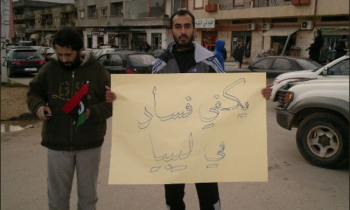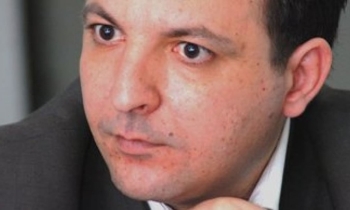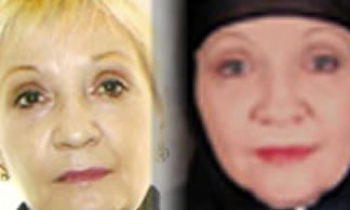The sixth central committee meeting of the Federation of Nepalese Journalists (FNJ) was conducted today, 1 May 2006, at the central office of the Federation in Media Village. The meeting was conducted under the leadership of President Bishnu Nisthuri. In the meeting, members discussed and made decisions about the situation of press freedom and freedom of expression; the future strategy, professional welfare, and programs organized by the Federation; and other issues in the new political scenario brought about by the people's movement, which saw the immense participation of all professionals, regardless of class or region.
Major decisions of the meeting are as follows:
1. The participants expressed their delight over the recent political development brought about by the historic people's movement, which has established the people's state authority and sovereignty by restoring Parliament and initiating a process of drafting a new Constitution with the founding of a constituent assembly. The participants decided for further organizational development and to function as a professional organization to attentively play an active role in the current political process. Meanwhile, the participants heartily congratulated the members of Parliament and the newly formed government reinstated by the strength of the people's movement.
2. The participants expressed their heartfelt respect to FNJ office bearers, former presidents, all members, branch, associate institutions, media professionals, professional institutions, human rights bodies, members of the civil movement and of civil society for their active participation and leadership in the movement and their role in creating a favorable environment for the movement. The participants expressed their heartfelt condolences with high respect to all the martyrs who sacrificed their lives during the recent activities of the movement; they also expressed their respect for the families of the martyrs and to all who suffered injury, torture and imprisonment for their convictions. The participants demand proper compensation be provided to the martyrs' families and to victims, that treatment be provided to the injured, and that action be taken against those who tried to suppress the people's movement.
3. The participants demanded the immediate release of journalists Tej Narayan Sapkota (Nakhu Jail), Rajendra Gautam (Nakhu Jail) and Hom Prasad Basyal (Butwal Prison).
4. The participants demanded the reinstatement of journalists, of both private and government media, who were fired in the aftermath of February 1, along with compensation for the losses they suffered. The participants also asked the government to pay compensation to those injured and those detained for long periods.
5. The participants demanded the government immediately scrap all fiats, ordinances and policies adopted by the royal government after February 1, and that it investigate and make public the various misdeeds of that government, including the one-door advertisement policy and the money spent from state coffers to divide the media sector. They demanded action against the beneficiaries of, as well as persons who issued, such orders.
6. The participants demanded that all the political appointments made by the royal government be repealed and the programs produced in favor of autocracy through misuse of state-owned media be stopped. The participants also demanded the resignation of Chairman of the Press Council, Mathbar Singh Basnet, for his misuse of the Council in contradiction of established rules and norms of the press. They also demanded the scrapping of the discriminatory method of newspaper classification and called for the rewriting of the Council's report.
7. The participants demanded the immediate reversal of incremental increases in postal charges.
8. The participants decided to honor senior journalists Harihar Birahi, Gopal Thapaliya and Keshav Raj Parajuli as fighters for press freedom in Nepal.
9. The participants drew the attention of the government toward the need for granting autonomy to state-owned media and for taking steps toward their privatization, as misuse of state-owned media looms large again. The meeting strongly objected to discrimination against private media cameramen during the covering of the appointment of the prime minister on Sunday, saying that the incident is an early sign of the misuse of state-owned media.
10. The participants decided that the newly formed government and related bodies should openly discuss the re-structuring of media policy, legal procedures and related bodies to ensure the Nepali media's right to information and freedom of expression.
11. The participants decided to organize various programs to protect the rights of working journalists and to ensure their professional security.
12. The participants demanded the public dissemination of the document detailing the illegal transactions that were made to fund the repression of the press and of freedom of expression after the Royal coup. They also demanded the equitable distribution of advertisements, and equal access by the media to a special government facility concerned with assisting weekly, fortnightly and monthly newspapers that have become economically insecure. The participants also urged the government to waive the renewal fees for FM stations, taking into account their existing conditions and the important role they played in recent events.
13. The participants heartily expressed their gratitude to the national and international community for their assistance, support and solidarity throughout the recent crisis, and they expressed their belief that such support will continue in future.









